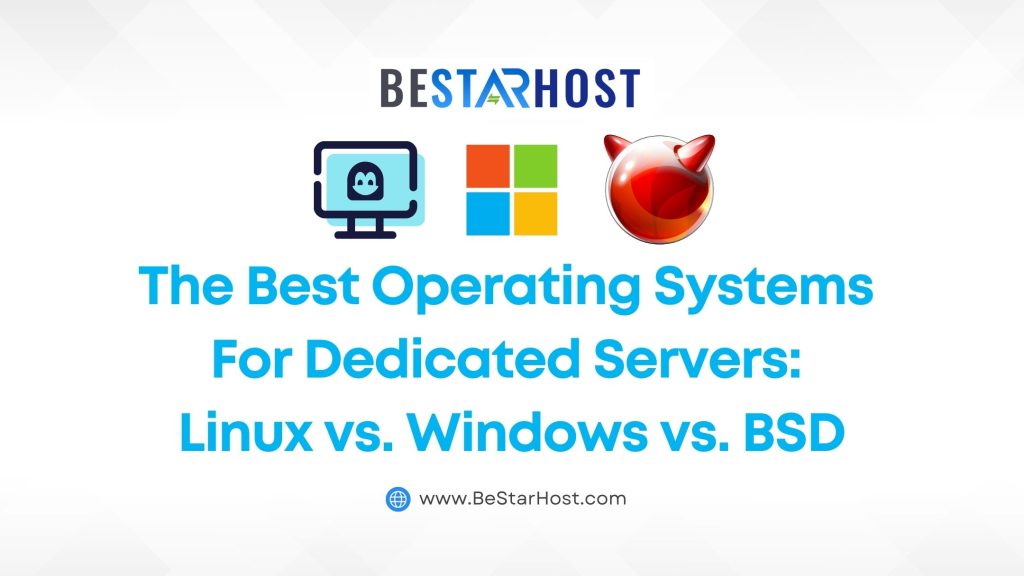 Choosing the right operating system (OS) for your dedicated server is crucial for optimal performance, security, and functionality. In this guide, we compare Linux, Windows, and BSD to help you make an informed decision based on your specific hosting needs.
Choosing the right operating system (OS) for your dedicated server is crucial for optimal performance, security, and functionality. In this guide, we compare Linux, Windows, and BSD to help you make an informed decision based on your specific hosting needs.
Overview of the Operating Systems
- Linux: An open-source OS known for its flexibility, security, and extensive community support. Popular distributions include Ubuntu, CentOS, and Debian.
- Windows Server: A commercial OS from Microsoft with robust enterprise support, widely used for applications that require .NET or Microsoft SQL.
- BSD (Berkeley Software Distribution): A Unix-like OS with advanced security features and excellent stability. FreeBSD and OpenBSD are common choices for dedicated servers.
Performance Comparison
- Linux: Highly efficient in resource management, making it ideal for running applications with minimal hardware usage.
- Windows: Offers excellent performance for enterprise-level applications but may consume more resources.
- BSD: Known for stability and low resource consumption, often used for critical infrastructure applications.
Security and Reliability
- Linux: Strong security due to frequent updates, robust community support, and customizable configurations.
- Windows: Regular security patches from Microsoft ensure protection, though it is a common target for cyberattacks.
- BSD: Exceptional security features like access controls and secure memory management, with OpenBSD being a gold standard in security.
Application Support
- Linux: Ideal for running open-source applications, web servers (Apache, Nginx), and database systems (MySQL, PostgreSQL).
- Windows: Best suited for Microsoft-based applications like .NET, ASP.NET, and Microsoft SQL Server.
- BSD: Often used for networking, firewall applications, and running advanced Unix-based software.
Ease of Use and Management
- Linux: Requires knowledge of command-line interfaces but has numerous user-friendly management tools like cPanel and Plesk.
- Windows: Features a graphical user interface (GUI) that simplifies management for those familiar with Windows systems.
- BSD: Primarily suited for advanced users comfortable with Unix-like environments.
Cost Considerations
- Linux: Free to use with no licensing fees, making it a budget-friendly choice.
- Windows: Requires a commercial license, adding to the overall hosting cost.
- BSD: Free and open-source with no licensing fees, offering enterprise-level features at a lower cost.
Ideal Use Cases
- Linux: Best for web servers, databases, and cloud hosting. Recommended for startups, developers, and enterprises using open-source technology.
- Windows: Ideal for businesses relying on Microsoft software, gaming servers, and enterprise-level applications.
- BSD: Suitable for firewall applications, security-focused environments, and highly stable server infrastructure.
Conclusion: Choosing the Right OS for Your Dedicated Server
- Choose Linux if you prioritize flexibility, security, and cost-efficiency.
- Choose Windows if you need compatibility with Microsoft applications and prefer a GUI-based management system.
- Choose BSD if security, stability, and performance are your top concerns.
For the best hosting experience, consider partnering with BeStarHost. Our reliable dedicated server hosting solutions support all major operating systems, ensuring high performance and excellent support tailored to your business needs.
